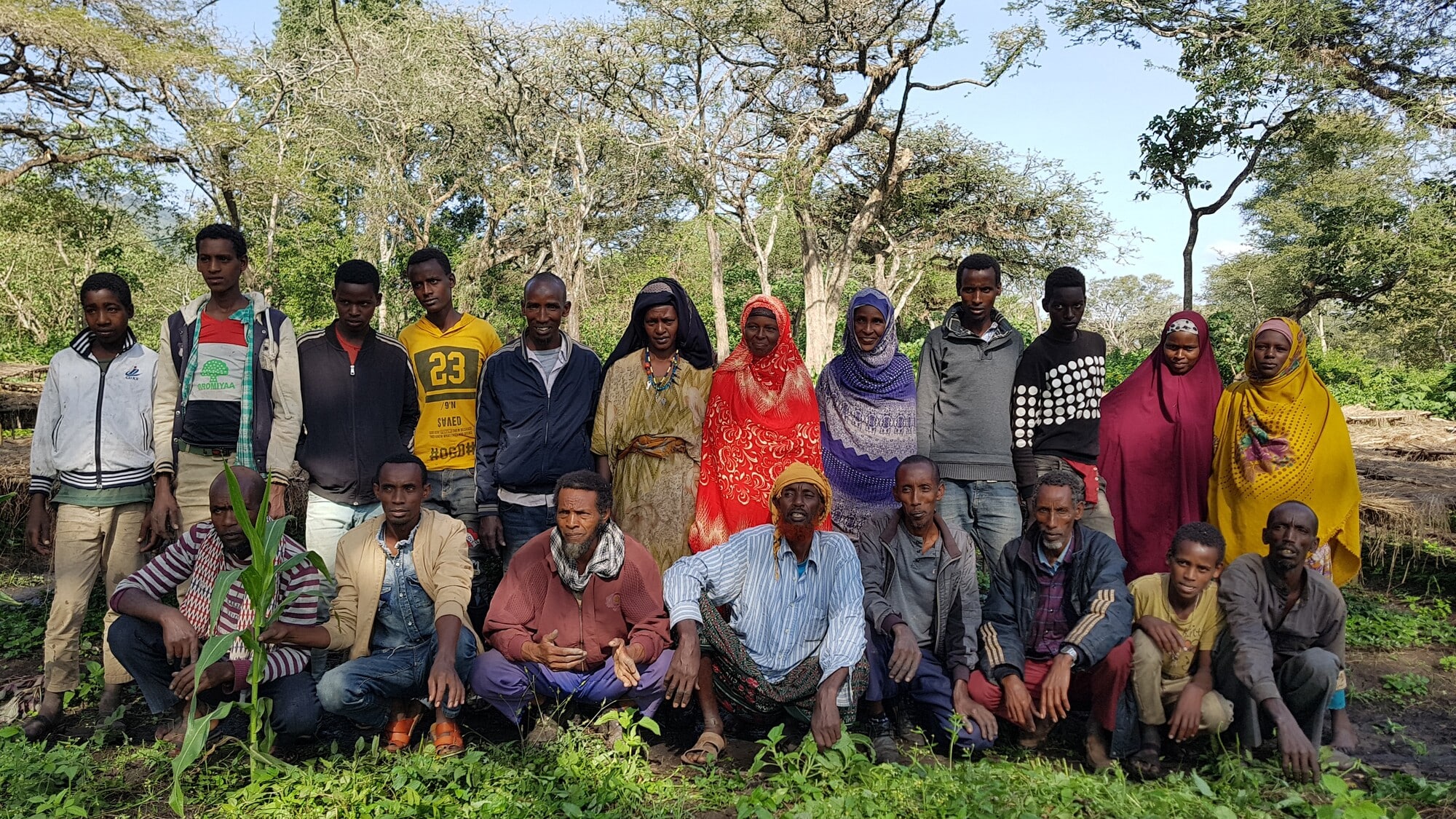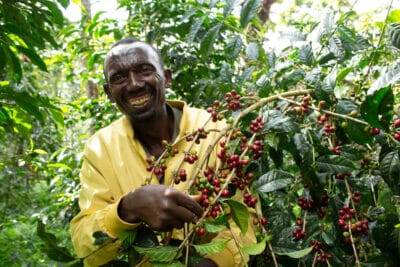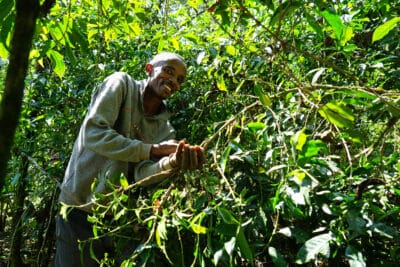News
Ethiopia
6 June 2022
Boosting incomes through ecosystem conservation

A total of 2.8 million Birr (UK £44,700) has been earnt by Participatory Forest Management Cooperatives and Participatory Rangeland Management Cooperatives supported by the Bale Eco-Region (BER) Phase II project in Ethiopia since 2019.
The money was generated through the sales of forest-friendly produce such as wild coffee, honey, and gum and resin.
The project, funded by the European Union, helps conserve the environment as well as help local communities develop sustainable livelihoods producing and selling non-timber forest products and fuel-efficient stoves, rearing livestock and adopting climate-smart agricultural practices. Having started in May 2019, Phase II of the project is set to continue until 2024.
The findings were published in a new report, giving an oversight on the achievements of the project, which is being implemented by Farm Africa in partnership with SOS Sahel Ethiopia, Frankfurt Zoological Society (FZS), International Water Management Institute (IWMI), and Population, Health, Environment Ethiopia Consortium (PHEEC).
The report details a range of results, from environmental protection to economic earnings.
Dr Stefan Lock, Head of Cooperation at the EU delegation to Ethiopia, who recently visited the project, commented:
"EU project partners Farm Africa, SOS Sahel, Frankfurt Zoological Society, IWMI and PHE do tremendous work in supporting livelihoods and economic opportunities in better balance with nature and the environment."
Dr Stefan Lock
Head of Cooperation at the EU delegation to Ethiopia
“The mountains are the water tower for an estimated over 12 million people in southern Ethiopia and neighbouring countries. Protection of the unique biospheres and careful water management are, therefore, important responsibilities. And I see with my own eyes how EU support to strong partners and committed communities can help make a difference.”
A total of 3,731 farmers plus 371 government staff have been trained in climate-smart agriculture practices as part of the project.
These farmers have seen their yields improve and their lives transformed thanks to the project.
“I was able to earn 12,000 Birr growing onions, cabbages and maize,” said Abdulkadir, a farmer based in Bale zone, Ethiopia who received training in climate-smart agriculture.
“The project helped me get farming inputs and above all, together with the local administration, it supported me to get farming land. This is a great help to enhance my productivity.”

Abdulkadir is not alone in finding success. “I have been working with many groups and individual for years, in my professional services as a forestry expert, I have never seen such a successful community nursery site,” said Abdulkerim Hussein, a Community Development Facilitator working on the BER II project, commenting on the success of a community nursery group in growing coffee and tree seedlings.
In the last two years, the Megariisaa nursery group has produced and sold 56,720 coffee seedlings and 16,600 seedlings for woodlots.
The project has brought environmental benefits too. A total of 2,279,095 tree seedlings have been planted on 450 hectares of land and following the project’s intervention, a large areas of land are now being sustainably managed.
A total of 115,875 hectares of forest land is now monitored by Bale Mountains National Park rangers, and a further 468,370 hectares of forest have come under sustainable management by participatory forest management cooperatives who work together to reduce deforestation and forest degradation.
Individuals and communities were also supported to develop environmentally friendly businesses. The project set up three youth-led enterprises to produce and sell energy-efficient cooking stoves.
The youthful enterprises are a great success, having sold 1,926 energy-efficient stoves and generated a total revenue of 602,000 Birr. The initiative gave young people the opportunity to simultaneously boost their incomes whilst reducing carbon emissions.
As well as protecting the environment, the project has boosted women’s economic empowerment. Dominique Davoux, Team Leader, Green Growth, at the EU delegation to Ethiopia, commented: “The inclusion of women is a central element, and we met with women’s savings groups and reproductive health groups and their impressive community leaders and role models.”
To date, over 3,600 women have been engaged in village savings and loan associations, with many accessing loans to set up small businesses.
Download a copy of the report, Sustainable livelihoods through ecosystem conservation.
Read stories from the report
The Magariisaa Community Nursery Group
Read nowAccess to water in Berak kebele
Read nowAbdulkadir’s story
Read nowThe project is funded by the European Union and received additional funding from Jersey Overseas Aid. Along with Farm Africa (the lead organisation), the project is implemented by SoS Sahel Ethiopia, Frankfurt Zooloigcal Society, International Water Management Institution and Population, Health, Environment Ethiopia Consortium.





